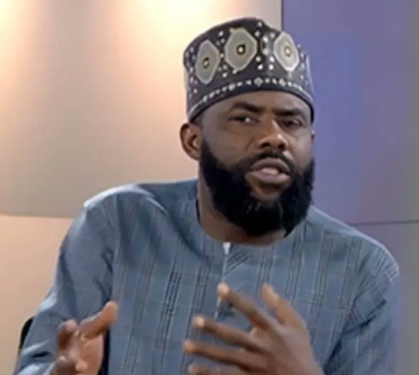Monday June 9, 2025|
In a move sending shockwaves through the political landscape, Mr. Aliyu Audu has stepped down from his role as the Senior Special Assistant on Public Affairs to President Bola Ahmed Tinubu, citing concerns over what he described as attempts to reduce Nigeria to a “one-party state.”
Audu’s resignation, officially dated June 8, 2025, was routed through the President’s Chief of Staff, Femi Gbajabiamila. In his terse resignation letter, he wrote:
“I write to formally tender my resignation as Senior Special Assistant to the president on Public Affairs, effective immediately.”
However, it was in his accompanying public statement that the depth of his disillusionment became clearer.
“This is not an act of rebellion but of conscience,” Audu declared in a statement shared Monday morning.
“Though I do not align with the PDP, I refuse to be used directly or indirectly as an instrument to reduce Nigeria to a one-party state. That would be a betrayal of both divine favor and democratic principle.”
Citing his belief in a pluralistic political environment and democratic balance, Audu condemned the growing political atmosphere under the APC-led federal government as one that stifles opposition and undermines democratic values.
“True democracy thrives on healthy competition, not political domination,” he said.
“If we now begin to silence or crush opposition simply because we have the upper hand, then we are no different from the very system we once criticized under Obasanjo in 2003.”
Audu, a known political strategist and staunch progressive voice, warned that such authoritarian tendencies are not only politically reckless but also “spiritually dangerous.”
He further drew a parallel between divine principles and governance, saying:
“God, in His wisdom, allows even belief and disbelief to coexist. Why then should we, mere mortals, fear ideological pluralism?”
He called for a Nigeria where strength lies not in forced uniformity but in the courage to compete with ideas and integrity.
Still, Audu was careful to clarify that his decision does not equate to abandoning the Tinubu administration completely.
“I will continue to support our government in power not just because I helped bring it, but also because I believe in the success recorded in the area of economic reforms,” he said.
However, he expressed strong disagreement with what he described as “the unholy alliance of PBAT with Wike,” suggesting it has diluted the administration’s commitment to true progressive ideals.
Known for his bold and often witty expressions, Audu signed off with a hint of drama:
“That does not mean our gbas gbos will seize o. We still here for the attacks and counter attacks. Oya Agbadorians over to you.”
Audu’s resignation comes at a time of rising political tension across the country, with fears growing over increasing centralization of power and internal discontent within the ruling All Progressives Congress (APC).
His exit, laced with conviction and candour, may mark the beginning of new conversations on the direction of Nigeria’s democracy—and the place of conscience in governance.
Related posts
Categories
- Advertisements (1)
- Agriculture (45)
- Breaking News (26)
- Business (598)
- Crime (989)
- Education (319)
- Entertainment (128)
- Features (13)
- For The Records (43)
- Foreign News (1,189)
- Health (219)
- Home News (332)
- Interview (9)
- Judiciary (349)
- Lifestyle (140)
- Local News (111)
- National News (1,448)
- Opinion (26)
- Politics (1,012)
- Religion (157)
- Science and Technology (125)
- Security (680)
- Sports (880)
- States' News (819)
- Transportation (330)
- Uncategorized (10)

